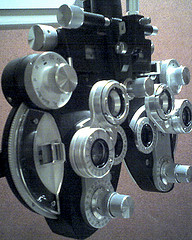In many ways, government procurement contracts are similar to procurement agreements in the private sphere. The basic elements of all contracts are the same, an offer and acceptance made between two or more competent parties for a legal purpose that creates obligations for both parties (e.g. payment for and the provision of goods/services). However, the government contract system is much more controlled than the private contracting sphere. The government contract bidding process is complex, highly-regulated process that relies upon companies filing honest, competitive offers to fill a given need. Bid rigging is a violation of government trust and a form of government contract fraud. As a bid rigging whistleblowers’ law firm, the Brod Law Firm partners with individuals who see this fraud happen and step forward to report it. When fraud occurs in the private sphere, the companies involved can suffer. When fraud occurs in the government contracting arena, the trust of every American is violated and every taxpayer suffers.
Bid Rigging: Overview and Forms
A useful explanation of bid rigging can be found in a Department of Justice  (“DOJ”) primer written to help people identify various forms of collusion among prospective government contractors. As the primer explains, at a broad level, bid rigging involves competitors conspiring to raise the price of goods/services being purchased by the government. Bid rigging occurs when competitors agree who will submit the best offer during the bidding process, agreements that eliminate/limit true competition. In some cases, the collusion involves some, not all, of the bidders for a given project. Although the primer focuses on antitrust matters, bid rigging can also be a violation of the False Claims Act.
(“DOJ”) primer written to help people identify various forms of collusion among prospective government contractors. As the primer explains, at a broad level, bid rigging involves competitors conspiring to raise the price of goods/services being purchased by the government. Bid rigging occurs when competitors agree who will submit the best offer during the bidding process, agreements that eliminate/limit true competition. In some cases, the collusion involves some, not all, of the bidders for a given project. Although the primer focuses on antitrust matters, bid rigging can also be a violation of the False Claims Act.
 Healthcare Fraud Lawyer Blog
Healthcare Fraud Lawyer Blog






 rise. In May 2010, as alleged in court filings, Tai took over operations at United Medical Diagnosis (“UMD”), a radiology clinic in Flushing, New York. From May 2010 through May 2012, Tai and his staff allegedly used the identity of the clinic’s prior owner, a radiologist, to submit more than $30 million in claims to Medicare and Medicaid. The claimed services were not actually performed and the bills were submitted without the knowledge or consent of the former UMD owner. United States Attorney Loretta Lynch explained, “The defendant sought to enrich himself and fund his lifestyle first by stealing a doctor’s identity and then using that stolen identity to steal Medicare and Medicaid funds…While the documentation provided was a sham, the money stolen was very real.”
rise. In May 2010, as alleged in court filings, Tai took over operations at United Medical Diagnosis (“UMD”), a radiology clinic in Flushing, New York. From May 2010 through May 2012, Tai and his staff allegedly used the identity of the clinic’s prior owner, a radiologist, to submit more than $30 million in claims to Medicare and Medicaid. The claimed services were not actually performed and the bills were submitted without the knowledge or consent of the former UMD owner. United States Attorney Loretta Lynch explained, “The defendant sought to enrich himself and fund his lifestyle first by stealing a doctor’s identity and then using that stolen identity to steal Medicare and Medicaid funds…While the documentation provided was a sham, the money stolen was very real.”
 Allegedly, defendants recruited homeless people from soup kitchens and shelters, specifically targeting those with valid Medicaid cards, by promising them free sneakers or other footwear. Recruits would be taken to medical clinics (typically places owned by one of the scammers) where they underwent unnecessary tests and were labeled with fake diagnoses. Scammers would then bill Medicaid to the tune of hundreds or even thousands of dollars per “patient.” Often, bills included claims for medical equipment and testing that were either inappropriate or wholly fictitious and for unnecessary follow-up visits. Before leaving, the homeless men and women were allowed to pick a pair of shoes from stacks of footwear in the clinics’ basement. In some cases, the recruiters were paid a referral fee per recruit; in other cases, Medicaid payments were split between the recruiter and the doctor.
Allegedly, defendants recruited homeless people from soup kitchens and shelters, specifically targeting those with valid Medicaid cards, by promising them free sneakers or other footwear. Recruits would be taken to medical clinics (typically places owned by one of the scammers) where they underwent unnecessary tests and were labeled with fake diagnoses. Scammers would then bill Medicaid to the tune of hundreds or even thousands of dollars per “patient.” Often, bills included claims for medical equipment and testing that were either inappropriate or wholly fictitious and for unnecessary follow-up visits. Before leaving, the homeless men and women were allowed to pick a pair of shoes from stacks of footwear in the clinics’ basement. In some cases, the recruiters were paid a referral fee per recruit; in other cases, Medicaid payments were split between the recruiter and the doctor.  Last Thursday,
Last Thursday,  Last month, news site
Last month, news site 